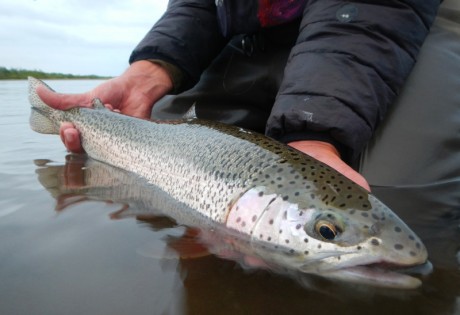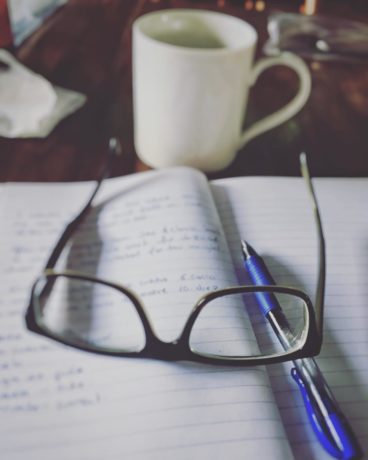
Many of us have had written in diaries as a kid. But let’s face it, it is hard to be still and collect thoughts, let alone write them down nowadays. We are inundated with distractions and bombarded with email, text, and the internet. Shoot, you probably got distracted a couple of times while reading this paragraph. Journaling is not something you do just to write down the events that happened that day, but practice for your mind and body to relax, decompress and be mindful of where you are and what you are doing.
Journaling is an exercise where you can log your achievements, successes, and failures. There is incredible value in journalizing your experiences, especially while on a fly fishing adventure. There are many benefits of journaling regularly, but creating an adventure journal for your fishing experiences will help you become a better angler.

Here are five things to consider to help you to start your fishing adventure journal:
Write in a notebook a good pen or a pencil- There are several benefits of going analog. First, when you write things down, you activate the brain in various ways; it helps you remember and comprehend things. Second, handwriting bolsters creativity and keeps the mind sharp. As for a notebook, you don’t need the leatherbound journal. A half-size, spiral-bound notebook works very well. They are reasonably priced, transport well, and relatively easy to maintain. Also, don’t underestimate the value of a good, smooth writing pen or pencil. The right writing utensil makes a big difference. Pilot G-2s or the Uni-ball 207 pens are smooth, long-lasting gel pens, and you can get ink refills. As for pencils, you can’t go wrong with the good ole Ticonderoga, #2 Pencil. They are the best pencils bar none.
Make sure to get the details right.- Always note the date, time, and weather. This sounds obvious, but for many, it isn’t. There is nothing more frustrating when you can’t remember exactly what year and time of day or who you were with when you caught that twenty-nine-inch Rainbow Trout on the Naknek River while there was a slight breeze to keep the bugs off. Note what fly you used, the guide’s name, and what the water levels were. Rediscovering specific details you wrote down is very gratifying. More importantly, they make your stories credible.
Tell the truth- Always tell the truth. This should be a no-brainer, but our ability and desire to exaggerate or bend facts is quite strong for many of us. While fresh in your mind, you want to write down exact details, not fabrications, polished realities, or partial truths. A fish close to thirty inches is not the same as a fish that is twenty-eight inches.
Write down how you felt- When you keep thoughts in your head, it can be hard to know how you think and feel. Writing down how you feel will you help process and cement your memories. It allows you to explain your own life to yourself, helping you understand yourself at that time when the time comes. It helps you rediscover the “What was I thinking” moments.
Designate a set time to write– After each outing, designate a time to sit and journal. Make around the same time each time. This will help you build a journaling habit. Consistency is the key. Also, set a constraint on time. This can help you overcome the anxiety of actually sitting and writing. “it’s only ten minutes,” or 15 minutes…this will make your journalizing habit easier to be consistent. Finally, just write. Write something You can either write a little or a lot, just write something.

All great stories start from a journal; Ernest Hemingway, Tom McGuane, Norman MacLean, David James Duncan, among the many story fishing stories we embrace, began from a journal of some sort. Webster’s Dictionary defines a journal as “A daily record, as of occurrences, experiences, or observations kept regularly.” Your journal is the canvas on which you can create the chef-d’oeuvre of your fishing adventure all in one analog notebook.
Sure, we have phones and cameras to document our trips. Still, there is something about writing down your experiences on your adventures that help us capture, internalize, and embrace the affairs of the day, especially on a fishing trip. This act of journaling your fishing experiences will make you a better fly angler. Great fly anglers journalize. So whether you’re fishing in Bristol Bay, Alaska, Andros South in The Bahamas, or anywhere around and about, don’t go on a fishing trip of a lifetime with reckless abandon. Log your journey in a journal. Trust us. It’s worth it. Once you’ve started building a library of adventures, you never know. You may end up with a book one day.
Other Tips:
Leave a Reply